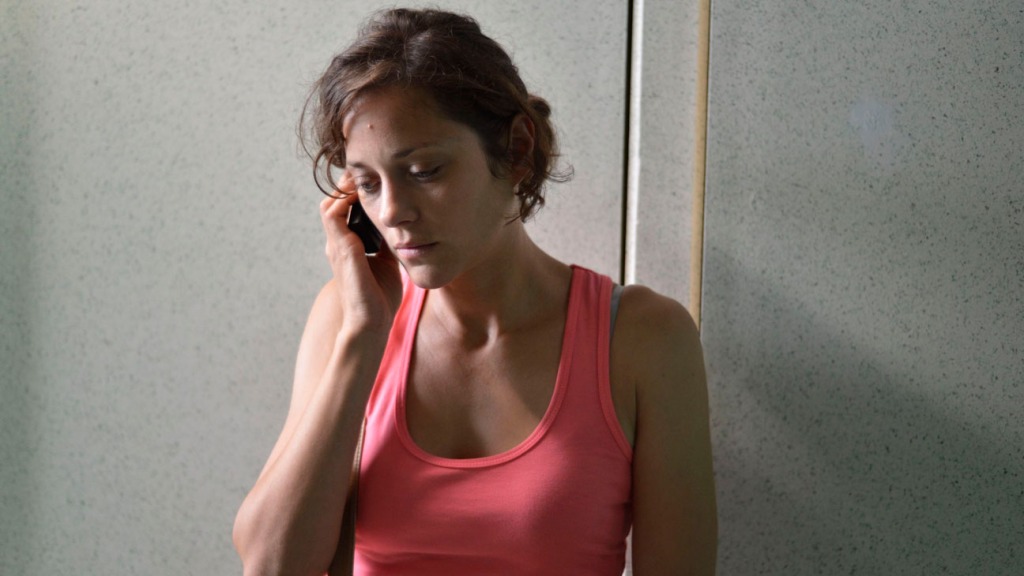Two Days, One Night continues an abiding interest in female driven narratives which has marked many of the films directed by The Dardennes. Could we call Two Days, One Night the final part in a trilogy of films, started in 2008 with The Silence of Lorna and also including The Kid with a Bike, that depict women in crisis? It might be detrimental to suggest such a pre-determined logic to the trajectory of The Dardenne’s career since the term trilogy is often associated with the mainstream blockbuster. One could only argue for such a trilogy based on what the Dardennes do next so we will have to wait and see if such an arbitrary categorisation could be made in the future. Two Days, One Night is a film about breathing and knowing how to breathe when faced with the most dreaded of anxieties – the ever present threat of unemployment.
If the Dardennes style of cinema could be labelled as naturalistic then their ideological agenda certainly recalls neorealist cinema especially Italian neorealism from the 1940s. The spectre of Antonio from Bicycle Thieves haunts the cinematic landscapes of realist cinema, resurfacing this time in Sandra (Marion Cotillard), who is made to relive similar anxieties, that of unemployment, poverty and personal failure. More than De Sica the Dardennes focus on the behaviour of Sandra in terms of her bodily reactions edging closer to a kind of corporeal cinema with the camera pausing at every opportunity to detail Sandra’s nausea. Her sickness is a direct manifestation of the current recession; the end of long term job permanency has left many in a state of unease, living in fear of being unemployed or worse redundant. All of this is channelled through Sandra’s fragile state, teetering on the brink, shutting herself away, sleeping, hiding, retreating into medication to numb the senses. Just as Antonio has to depend on Maria and Bruno so that he could deal with the anxiety of personal failure, Sandra is supported both emotionally and physically by Manu, her husband.
This is a political work just like many of the best neorealist films but it is political without being political. Politics emerge metonymically, through human behaviour and interaction which becomes integral to the way we respond to Sandra. The politics are in the way characters talk to one another, pause to reflect on decisions, carry boxes of pizza out of a car, and simply in the most overlooked of cinematic gestures/motifs – walking. Like Bicycle Thieves and many other Dardennes films this is a film about walking, but not just about showing Sandra walking, but to show her walking endlessly becomes a profoundly human action, that gradually becomes imbued with a dignity. Just in the way De Sica and Zavattini made Antonio realise his own self worth and the poverty of his fellow class by having him undergo an odyssey of sorts Sandra undergoes a similar ritual. By visiting her colleagues Sandra sees a new truth about her own position within a wider nexus of economic and social bankruptcy. It’s the same for Antonio in Bicycle Thieves – on many occasions he is faced with a poverty worse than his own.
Sandra’s journey is a personal one from the outset but it becomes a fable about the politicisation of an individual since by the end of the film Sandra realises what is at stake is more precarious, fragile and sacred than her own predicament – it is at this point do we see the film at its most political, its most transparent and its most moving. In truth the Dardennes raise questions concerning community, solidarity, exploitation and power, which are also some of the defining ideological themes of realist cinema and of course the eponymous melodrama.

Leave a comment